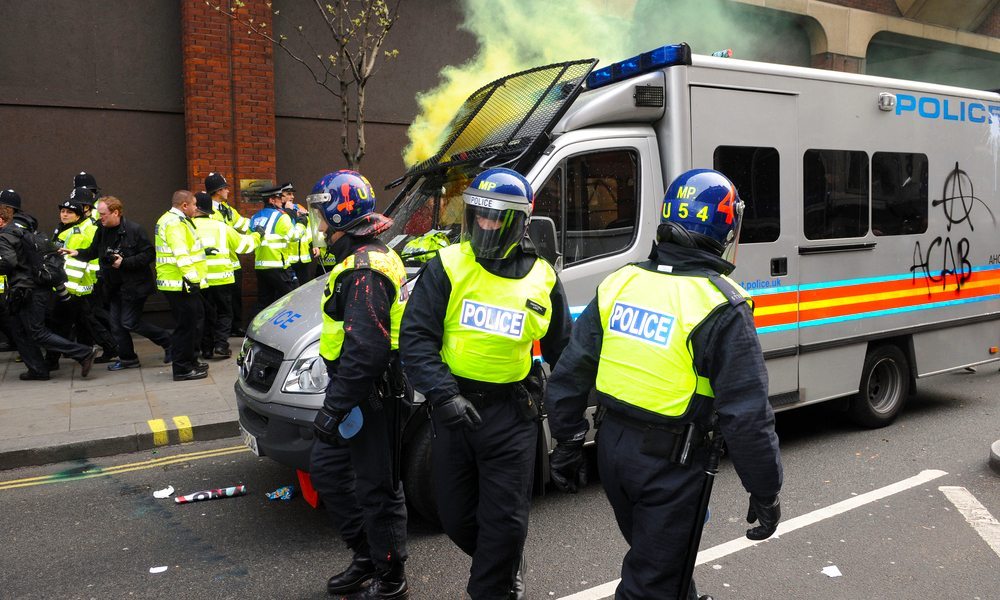Twitter Can Detect Crime Faster Than Police and It’s Worrying

Image via 1000 Words / Shutterstock
Toggle Dark Mode
Twitter is great for a lot of things, but now you might add predicting crime to its repertoire. In some cases, the micro-blogging platform identified potential threats significantly faster than police could, and that fact is worrying some privacy advocates.
That’s according to new research conducted by Cardiff University in England. The team discovered that Twitter can be used to detect potentially dangerous situations — such as a riot — up to an hour faster than police reports. The researchers used machine-learning algorithms to analyze more than 1.6 million tweets from the 2011 London riots, using easily accessible data like geolocation and timing, the frequency of tweets containing similar words and the sentiment of said tweets.
In all but two of the reported events, the researchers’ algorithms detected incidents, such as cars being set on fire, much quicker than they were reported to local authorities. “In this research we show that online social media [is] becoming the go-to place to report observations of everyday occurrences — including social disorder and terrestrial criminal activity,” study co-author Dr. Pete Burnap told Engadget. While not an outright replacement for police reporting, Burnap contends that similar algorithms could be used to assist first responders and emergency services — particularly in cash-strapped departments.
Burnap stressed that the research only aggregated generalized data and never exposed the privacy of any one individual. But privacy advocates still fear that similar tech could lead to the spread of Minority Report-like scenarios, with police able to preemptively assign “threat levels” to social media users and use detection tools to crack down on dissent. As an example, Twitter cut off its support to surveillance tool Geofeedia after the ACLU reported that the platform was being used by police to monitor activists and protests. “There must be stringent ethical practices in place to avoid [any privacy violations],” Burnap told Mashable.






